Home>Furniture>Kitchen Furniture>How Much Energy Does a Dishwasher Use
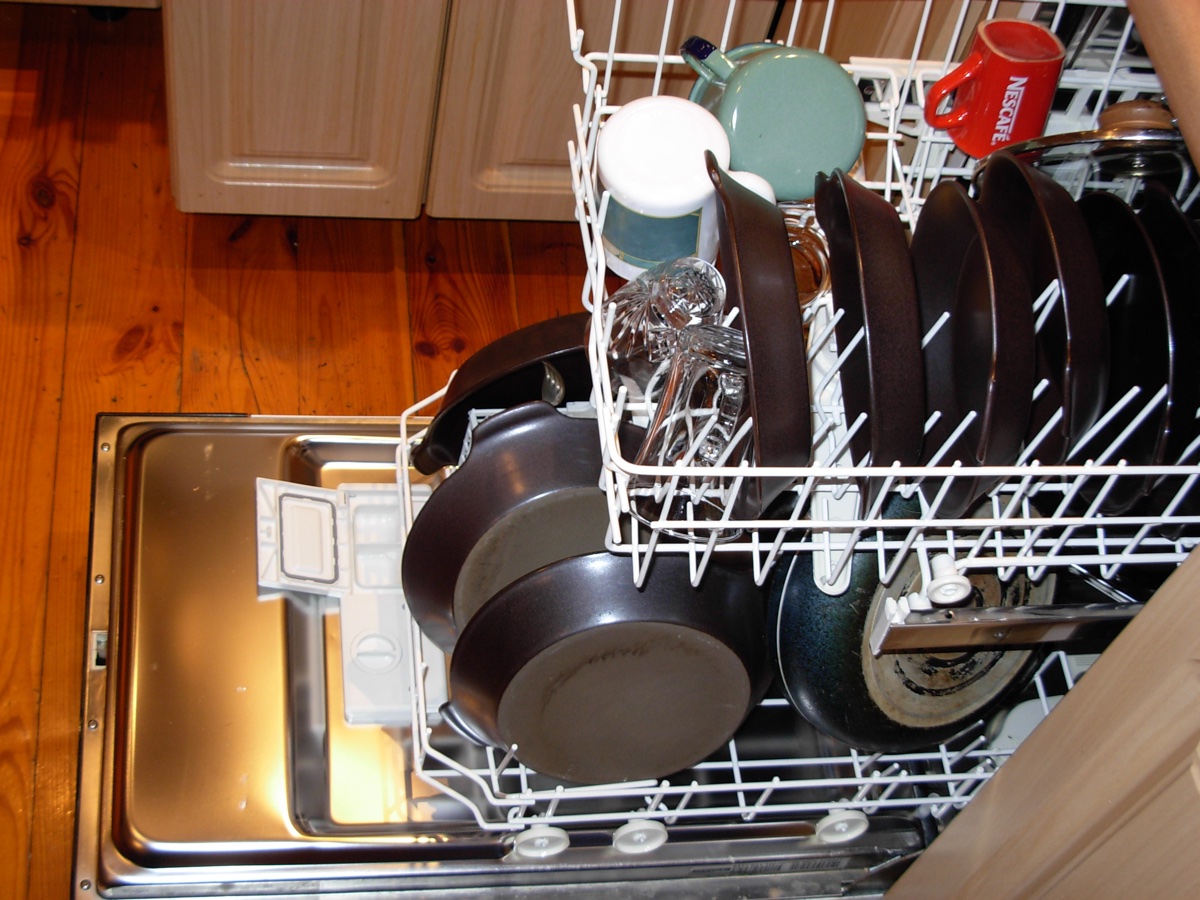

Kitchen Furniture
How Much Energy Does a Dishwasher Use
Modified: February 26, 2024
Discover how much energy dishwashers consume in this informative article. Find out how to optimize energy usage and save money on your utility bills.
(Many of the links in this article redirect to a specific reviewed product. Your purchase of these products through affiliate links helps to generate commission for Storables.com, at no extra cost. Learn more)
Introduction
When it comes to household chores, dishwashing can be a time-consuming and laborious task. Thankfully, modern advancements have given us the convenience of dishwashers, which not only save us valuable time but also help us achieve sparkling clean dishes with ease. However, as environmentally conscious individuals, it is important to understand the energy consumption of dishwashers and their impact on our carbon footprint.
Dishwashers have become an integral part of many kitchens, offering a convenient solution to the age-old problem of cleaning dirty dishes. These appliances are designed to automate the process, using a combination of water spray, detergent, and heat to remove food residues and sanitize the dishes.
While dishwashers undoubtedly make our lives easier, they do consume a significant amount of energy in the process. Understanding the energy consumption of dishwashers can help us make informed decisions about our usage and discover ways to reduce our environmental impact.
There are several factors that influence the energy usage of dishwashers. The size of the dishwasher, its age, and the energy efficiency rating all play a role in determining how much energy it consumes. Additionally, the chosen wash cycle, water temperature, and load size can also impact energy consumption.
Fortunately, manufacturers are continually improving the energy efficiency of dishwashers, resulting in more eco-friendly options on the market. Energy Star certified dishwashers are designed to use less water and electricity, making them a wise choice for those looking to minimize their energy consumption.
In the following sections, we will delve deeper into the energy consumption of dishwashers and explore the factors that influence it. We will also provide valuable tips on how to save energy while using dishwashers, and even compare the energy usage with manual dishwashing to help you make more informed decisions about your dishwashing routine.
By gaining a better understanding of how much energy dishwashers use and implementing energy-saving techniques, we can make a positive impact on the environment while still enjoying the convenience of this modern kitchen appliance.
Key Takeaways:
- Dishwashers consume varying amounts of energy, influenced by factors like size, age, and energy efficiency. Energy-saving practices, such as using eco-friendly detergents and adjusting water temperature, can significantly reduce energy usage.
- When comparing dishwashers to manual dishwashing, dishwashers typically use less water and offer efficient cleaning. However, manual dishwashing can be just as effective if done properly and doesn’t require electricity consumption.
Read more: How Much Water Does Dishwasher Use
Energy Consumption of Dishwashers
When it comes to energy consumption, dishwashers are known to be one of the largest energy-consuming appliances in the kitchen. They typically rely on electricity to power the machine, heat the water, and run the various cycles required to clean the dishes thoroughly.
The amount of energy consumed by dishwashers can vary depending on several factors. One significant factor is the size of the dishwasher. Larger dishwashers tend to consume more energy as they require more electricity to power the motor and heat the water to accommodate a higher number of dishes.
The energy efficiency rating of the dishwasher also plays a crucial role in its energy consumption. Energy-efficient dishwashers are designed to use less water and electricity while still delivering excellent cleaning results. Look for dishwashers with an Energy Star certification, as they meet strict energy-saving guidelines set by the Environmental Protection Agency (EPA).
Another factor that influences energy consumption is the chosen wash cycle and water temperature. More intensive cycles with higher water temperatures require additional energy to heat the water and generate the necessary cleaning power. Opting for shorter or eco-friendly cycles can help reduce energy consumption.
Load size is another crucial aspect to consider. Fully loading the dishwasher allows you to maximize its energy efficiency by efficiently utilizing the water, detergent, and energy required to clean the dishes. Conversely, running the dishwasher with smaller loads leads to wasteful energy consumption.
On average, dishwashers consume anywhere between 1,200 and 2,400 watts during a regular wash cycle. This can amount to roughly 1,200 to 2,400 kilowatt-hours (kWh) of electricity per year, depending on usage patterns and energy efficiency. However, it’s important to note that newer models and energy-efficient dishwashers consume significantly less energy than older, less efficient models.
While dishwashers do consume energy, they often use less water compared to manual dishwashing. According to studies, washing dishes by hand can use up to 27 gallons (103 liters) of water per load, while efficient dishwashers use as little as 3 to 6 gallons (11 to 23 liters) of water.
Advancements in technology have also led to the development of features like delay start and load sensors, which contribute to energy efficiency. Delay start allows you to set the dishwasher to run during off-peak hours when electricity rates are lower, while load sensors adjust the water and energy usage based on the size of the load.
Understanding the energy consumption of dishwashers is essential, as it allows us to make informed decisions about our appliance usage and promote energy-saving habits. In the next section, we will explore the factors that influence energy usage and provide practical tips to reduce energy consumption while using dishwashers.
Factors Influencing Energy Usage
Several factors have a significant impact on the energy usage of dishwashers. These factors include the size of the dishwasher, its age, energy efficiency rating, wash cycle selection, water temperature, and load size.
1. Size of the dishwasher: Larger dishwashers require more energy to power the motor and heat a larger volume of water. If you have a smaller household or don’t have many dishes to clean regularly, opting for a compact or slim dishwasher can help reduce energy consumption.
2. Age of the dishwasher: Older models of dishwashers tend to be less energy-efficient compared to newer models. Technological advancements have led to the development of more energy-saving features and improved insulation in newer dishwashers, resulting in reduced energy usage.
3. Energy efficiency rating: Look for dishwashers with an Energy Star certification. These dishwashers meet strict energy-saving guidelines and typically use less water and electricity to clean the dishes effectively.
4. Wash cycle selection: Different wash cycles have varying energy requirements. More intensive cycles with higher temperatures use more energy to clean heavily soiled dishes, while shorter or eco-friendly cycles consume less energy. Adjusting the wash cycle based on the level of dirtiness can help you save energy.
5. Water temperature: Hot water is often needed to achieve a thorough clean in a dishwasher. The higher the water temperature, the more energy required to heat it. However, keep in mind that some dishwashers have a built-in heating element to heat the water, so it’s important to strike a balance between water temperature and energy consumption.
6. Load size: To maximize energy efficiency, it is recommended to fully load the dishwasher before running a cycle. Running the dishwasher with smaller loads leads to wasteful energy consumption. Ensure that dishes are loaded correctly to allow water and detergent to reach all surfaces effectively.
7. Maintenance and usage habits: Proper maintenance, such as regular cleaning of filters and checking the dishwasher’s performance, can help optimize energy usage. Additionally, avoiding pre-rinsing dishes and using eco-friendly detergents can also contribute to energy savings.
By considering these factors and making appropriate choices, you can effectively reduce the energy consumption of your dishwasher. In the next section, we will provide some valuable tips on energy-saving practices to further minimize your environmental footprint.
Consider using the energy-saving mode on your dishwasher, if available, to reduce energy consumption. Additionally, wait until you have a full load before running the dishwasher to maximize efficiency.
Energy-saving Tips for Dishwashers
Dishwashers are a convenient appliance that can save time and effort in the kitchen. However, there are several energy-saving practices you can adopt to reduce the environmental impact of using your dishwasher. Here are some valuable tips to help you save energy:
1. Load the dishwasher efficiently: Make sure to fully load the dishwasher before running a cycle. This allows you to maximize the energy efficiency by utilizing the water, detergent, and energy required to clean a full load of dishes. Avoid overcrowding or stacking dishes too closely, as this can hinder the cleaning process.
2. Use the eco-friendly or shorter wash cycles: Many dishwashers come with eco-friendly or shorter wash cycles that use less water and energy. These cycles are ideal for cleaning lightly soiled dishes and can help you save energy while still achieving sparkling clean results.
3. Skip the pre-rinsing: Modern dishwashers are designed to handle food residues without the need for pre-rinsing. Simply scrape off excess food from the dishes before loading them into the dishwasher. By skipping the pre-rinsing step, you can save water and energy.
4. Wash dishes in off-peak hours: If your dishwasher has a delay start feature, consider setting it to run during off-peak hours. This way, you can take advantage of lower electricity rates and reduce the overall energy consumption of your dishwasher.
5. Adjust water temperature: Most dishwashers offer different temperature settings. Opting for lower temperature settings can help save energy, as less energy will be required to heat the water. Experiment with different temperature settings to find the optimal balance between energy efficiency and cleaning effectiveness.
6. Keep the dishwasher well-maintained: Regularly clean the dishwasher’s filter and spray arm to ensure optimal performance. A dirty filter can affect water flow and require the dishwasher to work harder, increasing energy consumption. Refer to your dishwasher’s manual for instructions on cleaning and maintenance.
7. Use energy-saving mode: Some dishwashers have an energy-saving mode that further reduces energy consumption. Activate this mode whenever possible to optimize energy efficiency.
8. Consider air drying: Instead of using the dishwasher’s built-in drying cycle, try using the air-drying function or allowing the dishes to air dry naturally. This can save energy by eliminating the need for the dishwasher to heat air for drying purposes.
9. Use eco-friendly detergents: Choose eco-friendly dishwasher detergents that are phosphate-free and biodegradable. These detergents not only have a lower environmental impact but also require less energy to break down and rinse off from your dishes.
10. Upgrade to an energy-efficient dishwasher: If your dishwasher is old and not energy-efficient, consider upgrading to a newer model that has an Energy Star certification. These dishwashers are designed to use less water and electricity, significantly reducing energy consumption over time.
By implementing these energy-saving tips, you can minimize the energy consumption of your dishwasher, helping to reduce your carbon footprint while still enjoying the convenience of a clean and sanitized kitchen.
Comparison with Manual Dishwashing
When it comes to washing dishes, many people wonder if using a dishwasher is more energy-efficient than washing dishes by hand. While the answer depends on various factors, it is worth exploring the comparison between these two methods.
Energy Consumption: Dishwashers typically use less water than manual dishwashing. Efficient dishwashers can use as little as 3 to 6 gallons (11 to 23 liters) of water per load, while hand washing can consume up to 27 gallons (103 liters) of water or more. However, dishwashers do consume electricity to power their motors, heat the water, and run the various cycles. As for manual dishwashing, it requires no electricity but does require hot water, which can contribute to energy consumption if heated using fossil fuels.
Water Usage: Dishwashers generally use less water than manual dishwashing. This is because modern dishwashers are designed to spray water efficiently and effectively clean dishes. On the other hand, hand washing dishes often leads to more water waste as the tap is continuously running. However, it is essential to note that efficient hand washing techniques, such as using a basin or filling the sink with soapy water, can help reduce water usage.
Cleaning Efficiency: Dishwashers are designed to clean dishes thoroughly, utilizing high water temperatures and powerful jets to remove food residues and sanitize dishes. This can result in more effective cleaning compared to hand washing, especially when dealing with tough, stuck-on food particles. However, manual dishwashing can be just as effective if proper techniques, such as using a good scrub brush and sufficient soap, are employed.
Time and Effort: Dishwashers undoubtedly save time and effort compared to manual dishwashing. Simply load the dishwasher, press a few buttons, and let it do the work. This frees up valuable time that can be spent on other tasks. Manual dishwashing, on the other hand, requires more physical effort, including scrubbing, rinsing, and drying each dish by hand.
Sustainability: When it comes to sustainability, there are a few factors to consider. Dishwashers are often more energy-efficient overall, especially if using an energy-efficient dishwasher and running full loads. However, the manufacturing and disposal of dishwashers have environmental implications. Hand washing may have a smaller environmental impact if done efficiently and with eco-friendly detergents.
Personal Preference: Ultimately, the choice between using a dishwasher or washing dishes by hand boils down to personal preference. Some individuals prefer the convenience and time-saving aspects of dishwashers, while others find satisfaction and mindfulness in the process of manually washing dishes. It’s important to consider your lifestyle, priorities, and environmental values when deciding which method to adopt.
At the end of the day, the energy consumption and environmental impact of dishwashers versus manual dishwashing depend on various factors such as appliance efficiency, water usage habits, washing techniques, and individual circumstances. By being mindful of your energy and water usage, choosing efficient appliances, and employing eco-friendly practices, you can minimize the environmental impact regardless of the method you choose.
Read more: How Much Power Does A Dishwasher Use
Conclusion
Dishwashers have revolutionized the way we approach dishwashing, providing us with convenience and efficiency in the kitchen. However, it’s important to consider the energy consumption and environmental impact of these appliances. By understanding the factors that influence energy usage and adopting energy-saving practices, we can minimize our carbon footprint without compromising cleanliness.
Dishwashers consume varying amounts of energy depending on factors such as size, age, energy efficiency rating, wash cycle selection, water temperature, and load size. Larger and older models generally consume more energy, while energy-efficient dishwashers with an Energy Star certification use less water and electricity.
To minimize energy consumption, it’s recommended to fully load the dishwasher, use eco-friendly or shorter wash cycles, skip pre-rinsing, wash dishes during off-peak hours, adjust water temperature, keep the dishwasher well-maintained, and use air drying or eco-friendly detergents. These practices can significantly reduce energy usage and contribute to a more sustainable dishwashing routine.
When comparing dishwashers to manual dishwashing, dishwashers typically use less water and offer efficient cleaning. However, manual dishwashing can be just as effective if done properly, and it doesn’t require electricity consumption. It ultimately comes down to personal preference and a consideration of sustainability factors.
In conclusion, by making informed choices and employing energy-saving techniques, we can enjoy the convenience of dishwashers while minimizing our environmental impact. Whether you choose to use a dishwasher or wash dishes by hand, being mindful of energy and water usage and adopting eco-friendly practices can make a significant difference. Let’s strive for a greener future by embracing energy efficiency in our dishwashing routines and becoming stewards of the environment.
Frequently Asked Questions about How Much Energy Does A Dishwasher Use
Was this page helpful?
At Storables.com, we guarantee accurate and reliable information. Our content, validated by Expert Board Contributors, is crafted following stringent Editorial Policies. We're committed to providing you with well-researched, expert-backed insights for all your informational needs.
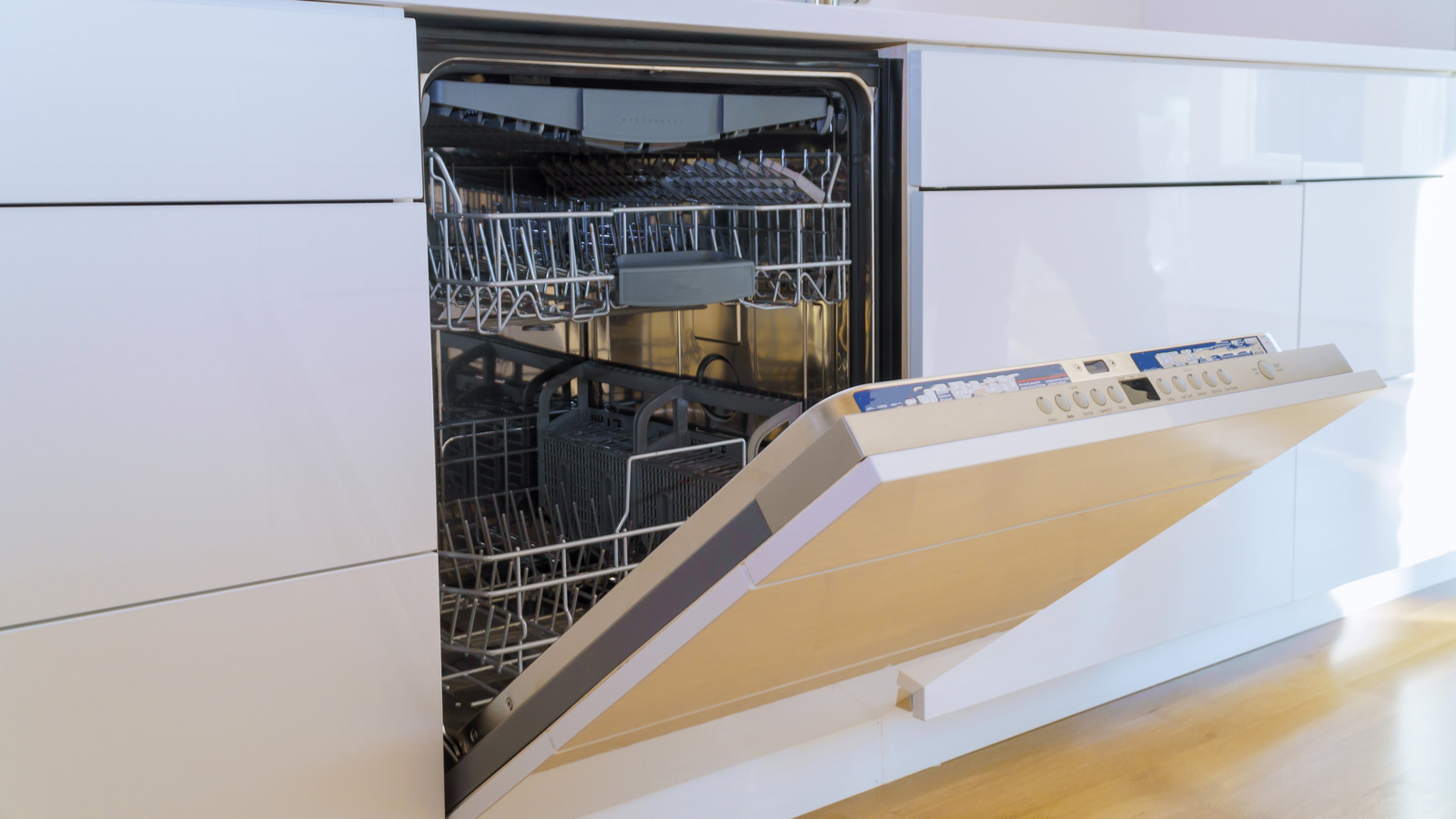


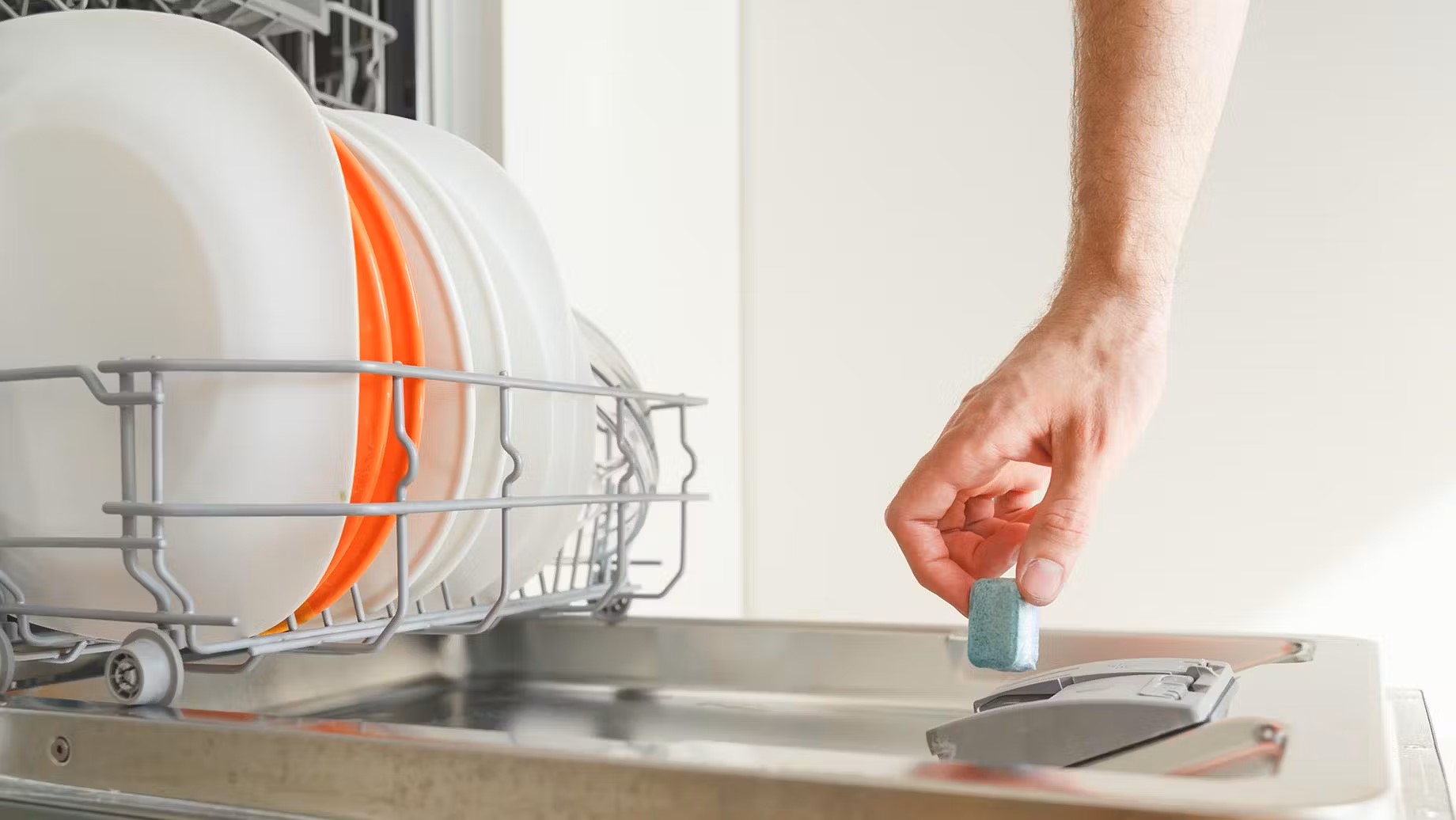




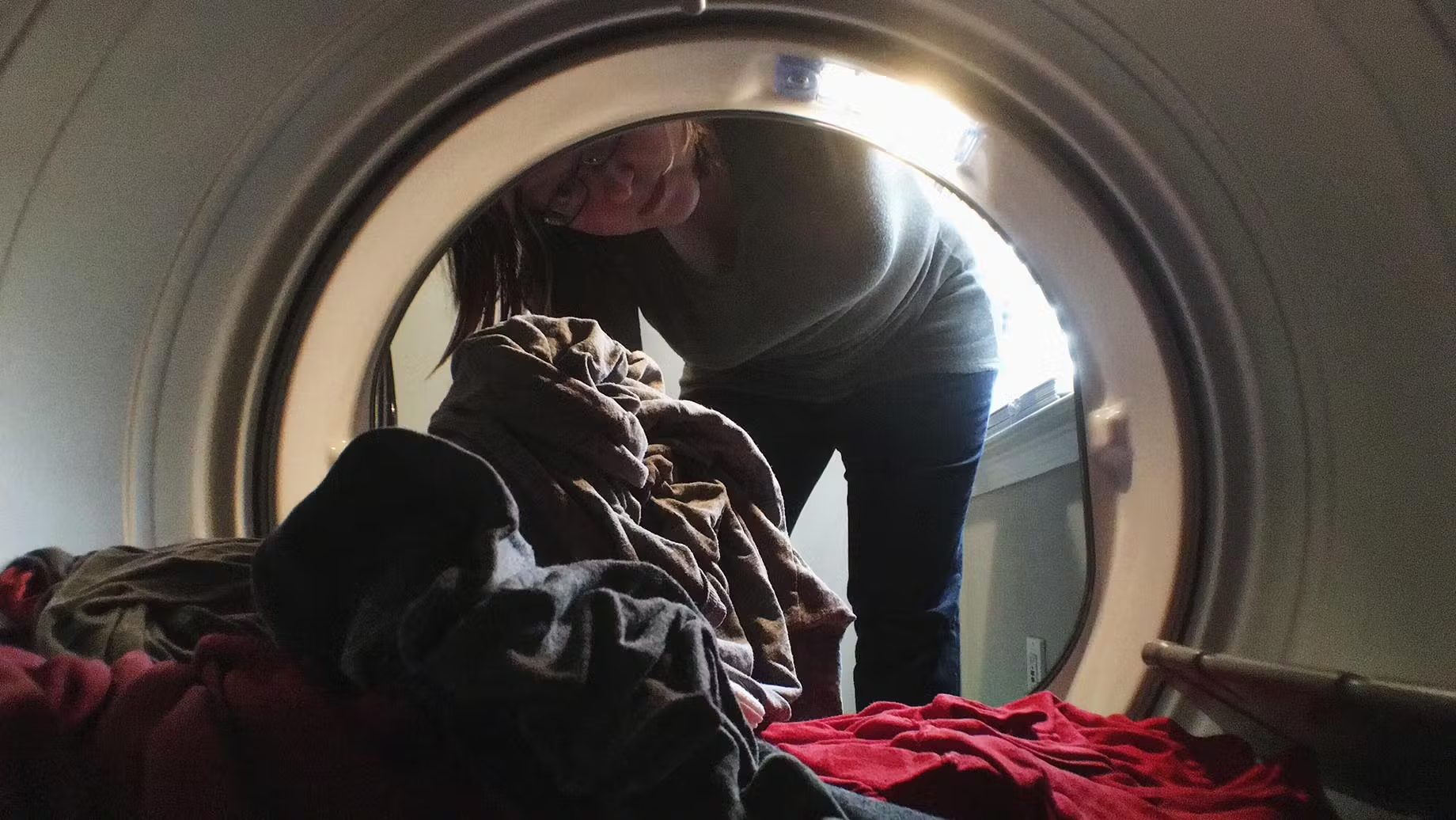
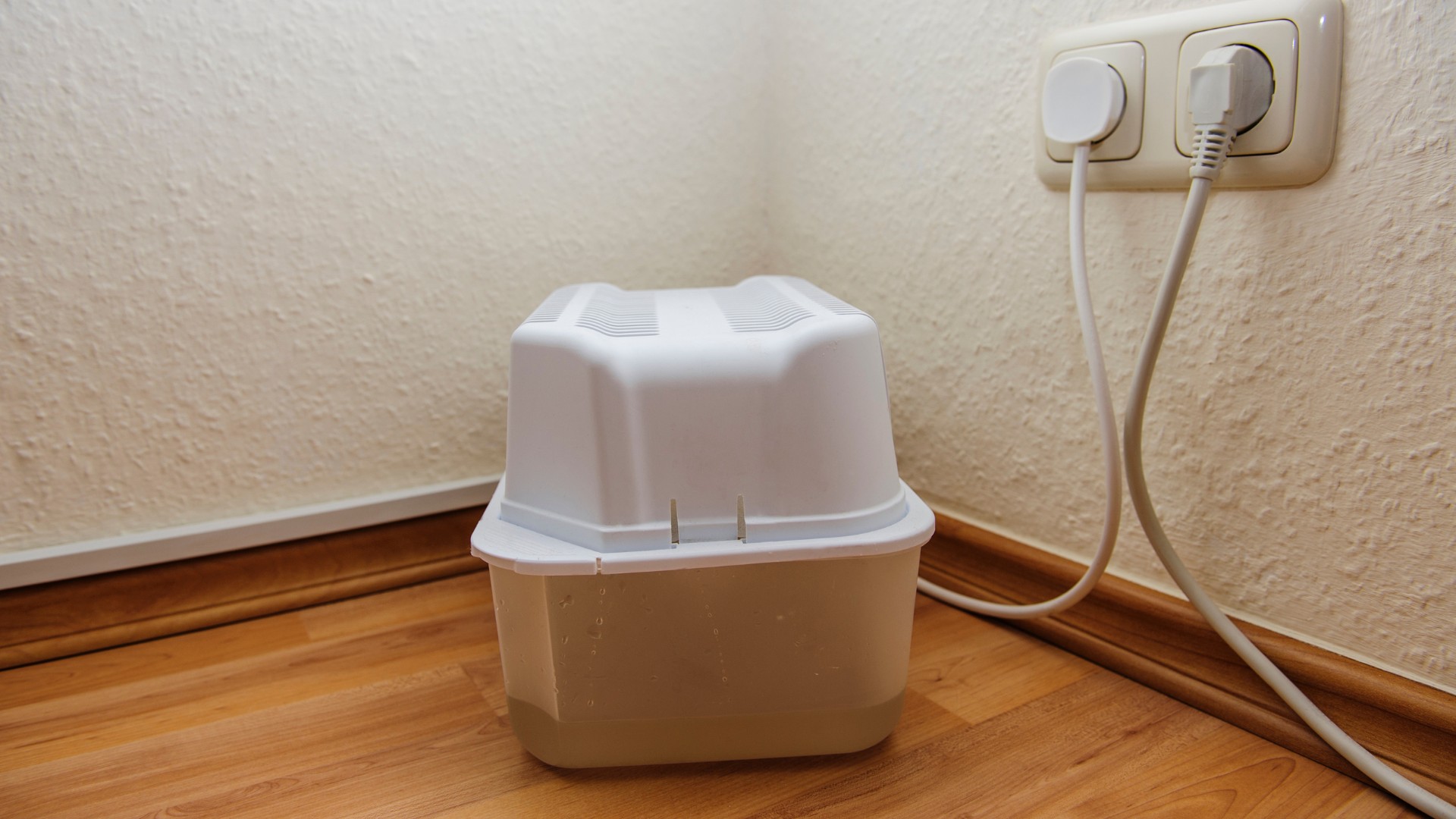



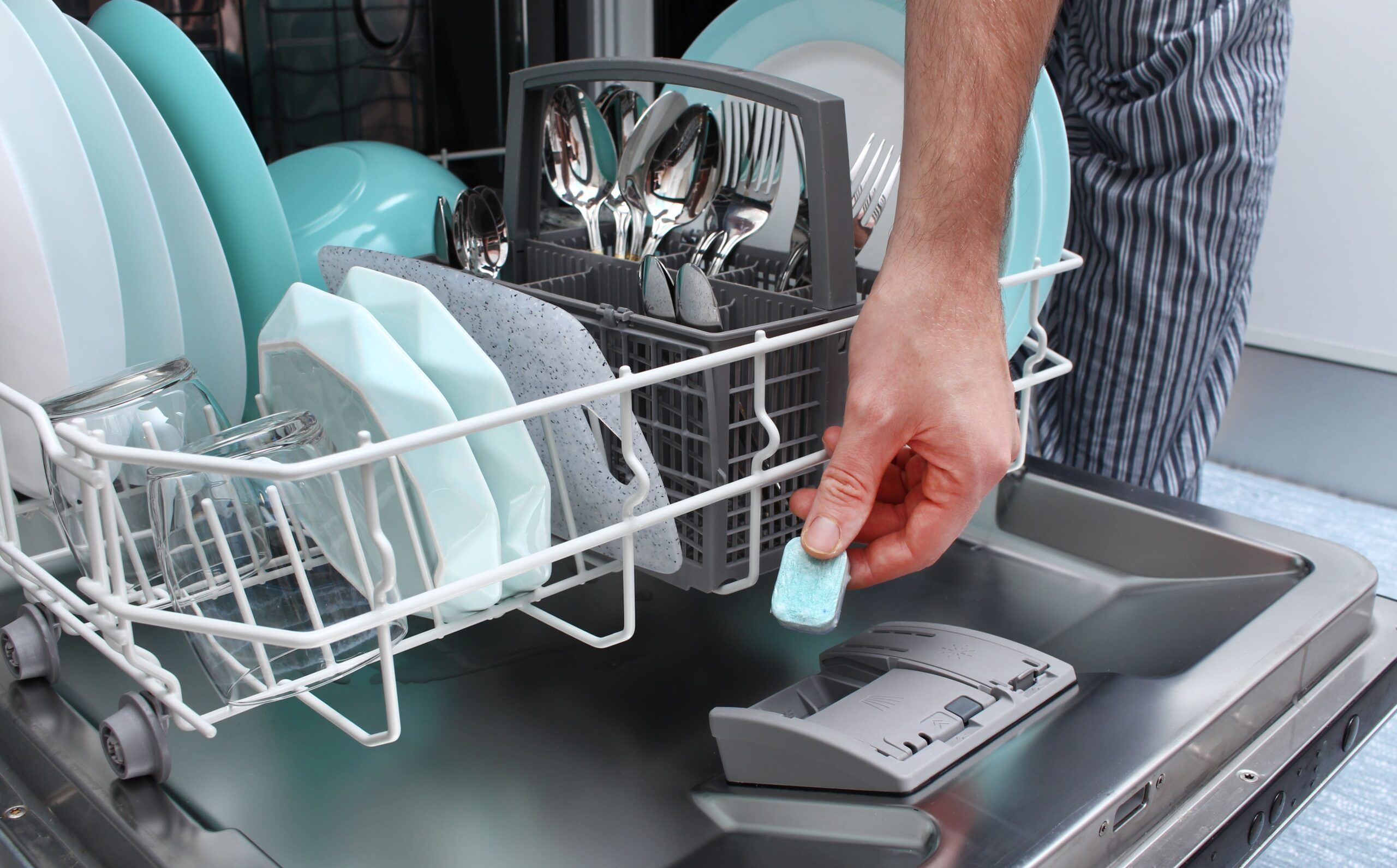

0 thoughts on “How Much Energy Does a Dishwasher Use”